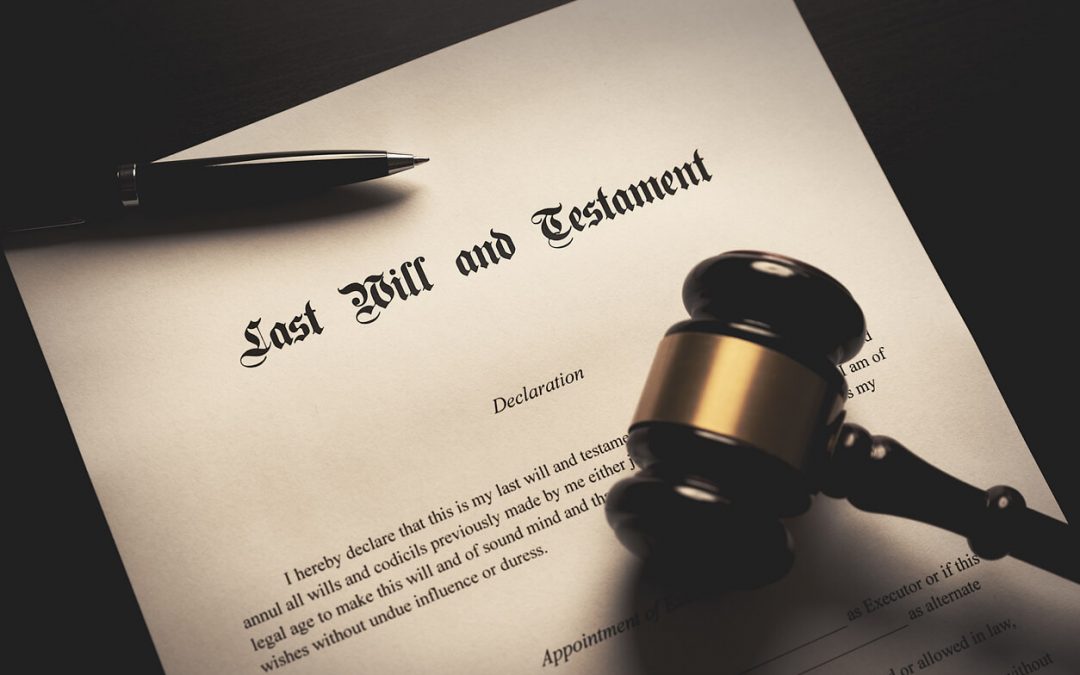A Decedent will typically designate a trusted person as their Executor in their Will. It is the job of the Executor to submit the Will for Probate upon such person’s death. If the Will is admitted to Probate, the Surrogate Court issues an Order giving the Executor the authority to act. It, therefore, becomes the Executor’s responsibility to marshal the Estate assets, pay any liabilities, and ultimately, to distribute the assets according to the Will’s instructions.
Ten Responsibilities of a Will Executor
The typical responsibilities of a Will’s Executor include:
1. Determine if there are any Probate assets that are not operated on by the Decedent’s Will.
Probating a Will isn’t always necessary, as some assets may vest in certain beneficiaries by operation of the law. This means that those assets do not require Probate in order to be administered. This is because the Decedent had previously designated that specific person as the ultimate inheritor of that particular asset. The assets that have designated beneficiaries to bypass the Estate of the Decedent and can be collected by the beneficiary via an expedited process outside of Probate. However, if Probate is required, it is best practice to consult with a Probate attorney.
2. If Probate is necessary to administer assets, the Executor should submit the original Will for Probate with the Surrogate’s Court.
As the proponent of the Will, the Executor is usually the person that submits the Will for Probate in the Surrogate’s Court. As such, the Executor must comprehend every nuance of the Will and Probate process. This includes an intimate knowledge of the Estate’s assets, liabilities, beneficiaries, and what hurdles there may be to having the Will admitted to Probate.
3. Notify any necessary parties and/or creditors of the Decedent’s death.
The Executor will typically notify blood relatives, the Social Security Administration, the Decedent’s banks and credit card companies, and other necessary parties of the Decedent’s passing. Once appointed, the Executor may also negotiate the Decedent’s debts and settle the Decedent’s obligations.
3. Defend the Probate of the submitted Will in court.
The Will’s Executor may need to appear in Court to defend the Will if the Will is being objected to.
6. Catalog and safeguard the Estate’s assets until they can be distributed.
The Will Executor is responsible for marshaling and safeguarding the Estate assets until they are distributed or sold. Any personal property is to also be identified and carefully held until it is delivered to the beneficiaries.
9. Sell or dispose of real or personal property belonging to the Estate.
An Executor may need to deliver the property to a particular beneficiary (if required in the Will) or to sell the Estate property in order to make cash distributions.
5. Set up a bank account for incoming Estate assets and watch for bills.
The Executor will need to create a bank account to hold any payments that may be sent to the Decedent, such as an upcoming paycheck, rent, or other income. Any assets that are sold or converted to cash will also be placed in the Estate bank account.
7. Pay the Estate’s debts and taxes.
The Executor is also responsible for paying ongoing bills, expenses, and debts of the Estate from the Estate account. The Executor needs to file the Decedent’s final income tax returns and, depending on the Estate’s size, there may also be a need to file and or pay other state or federal taxes.
8. Distribute the assets.
The Estate’s assets will be distributed to the beneficiaries as directed in the Will. Typically, a beneficiary will acknowledge receiving their distribution as per the instructions in the Will. Such beneficiaries will sign a document called a Release.
10. File an inventory of the Estate’s assets with the Court and close out the settled Estate.
The Court will require a detailed list describing the assets that were marshaled on behalf of the Estate. At this time, the Executor may also want to file any releases signed by the beneficiaries of the Estate to notify the Court that the Estate has been settled.
Each Estate may involve different circumstances that require more involved or nuanced expectations of the Executor. Consult with an Estate Planning Attorney if you have any questions about the role of a Will Executor and the Probate or Estate Administration process.
Contact the Estate Attorneys at N. Khasidova & Associates for a Consultation Today.
If you’re looking for exceptional legal guidance with Estate Planning in New York, turn to N. Khasidova & Associates. We are a competitive boutique-style firm offering individualized attention at reasonable prices. Our team is guided by strong principles of solid attorney ethics, and we are easily accessible to a diverse clientele with unique backgrounds and family dynamics.
Contact our team by giving us a call at (718) 568-8181 or visit our website.

